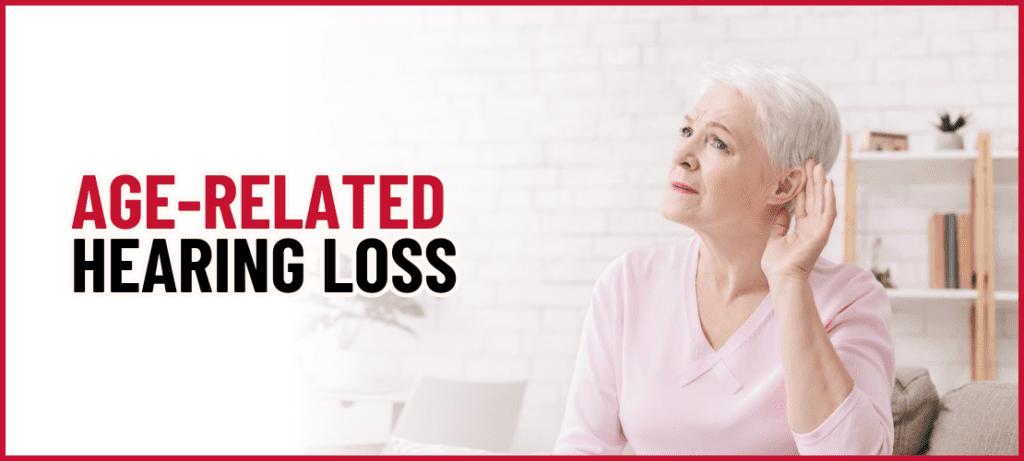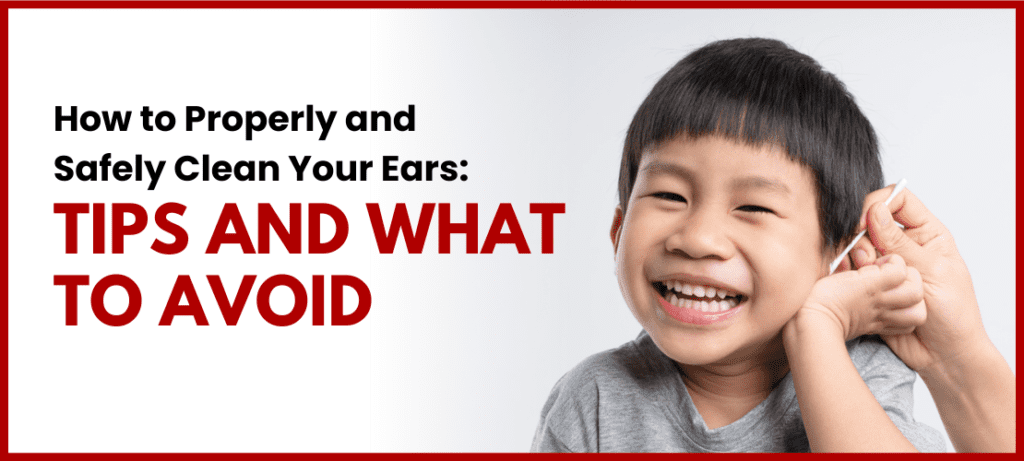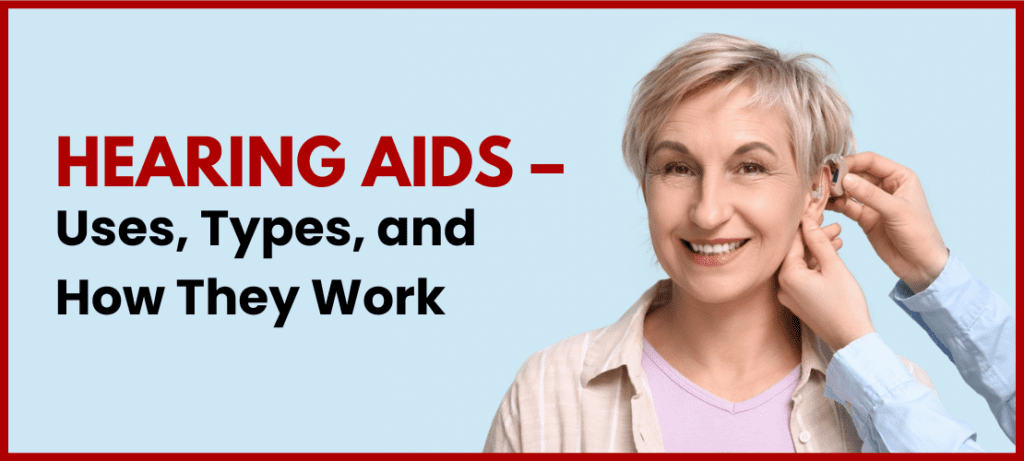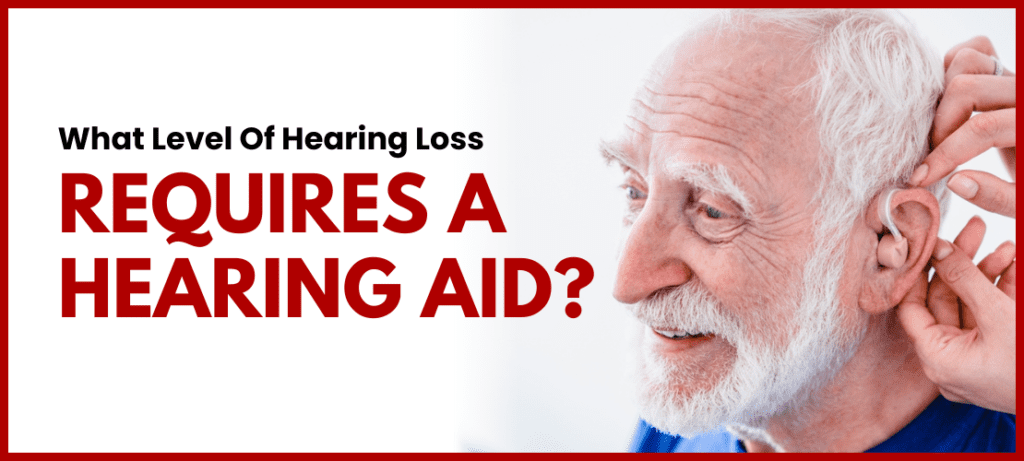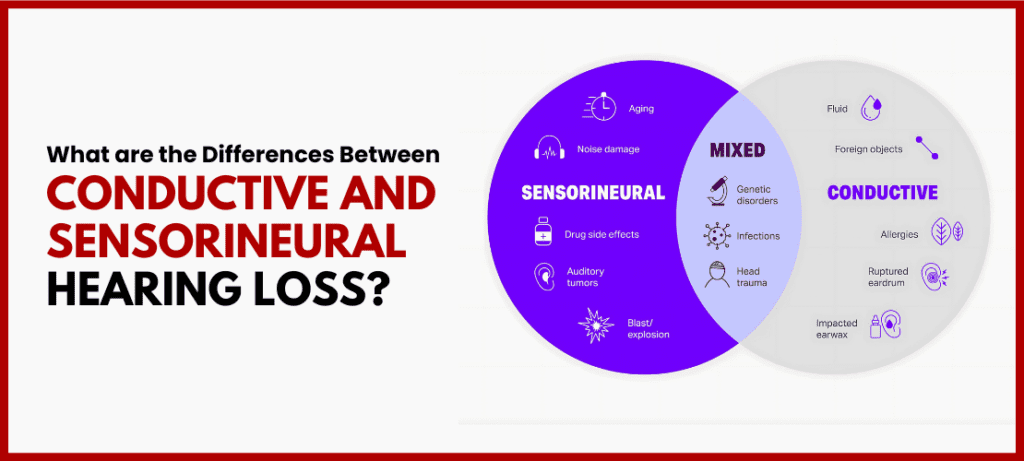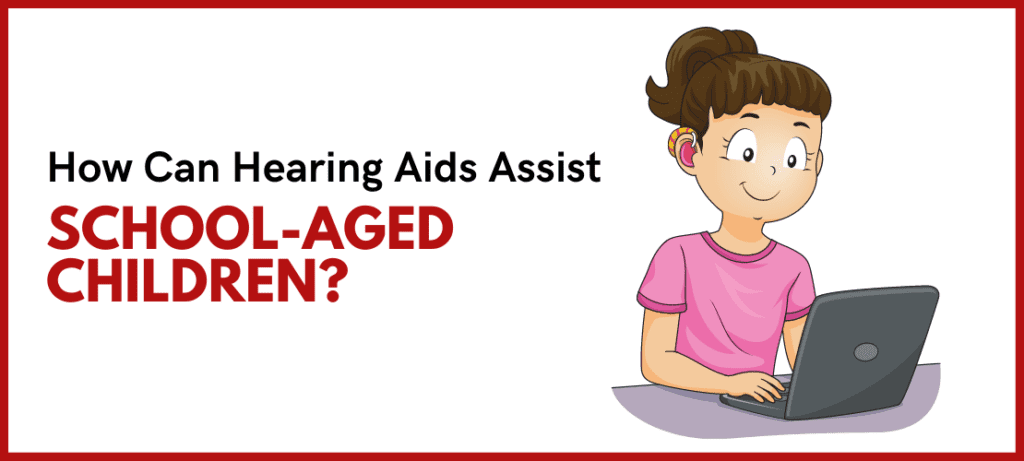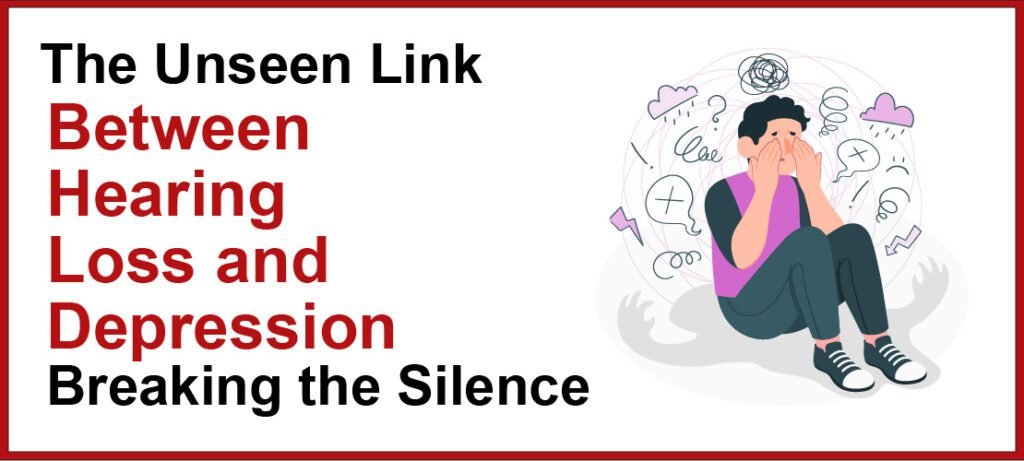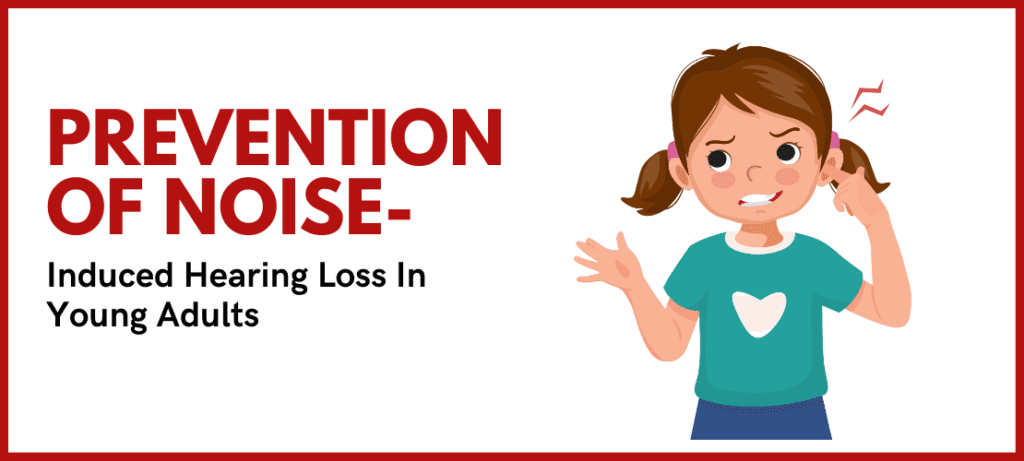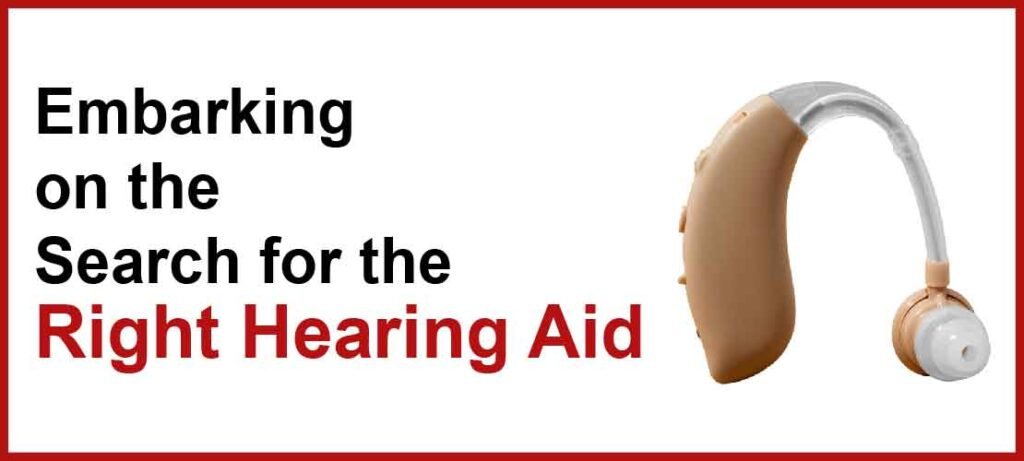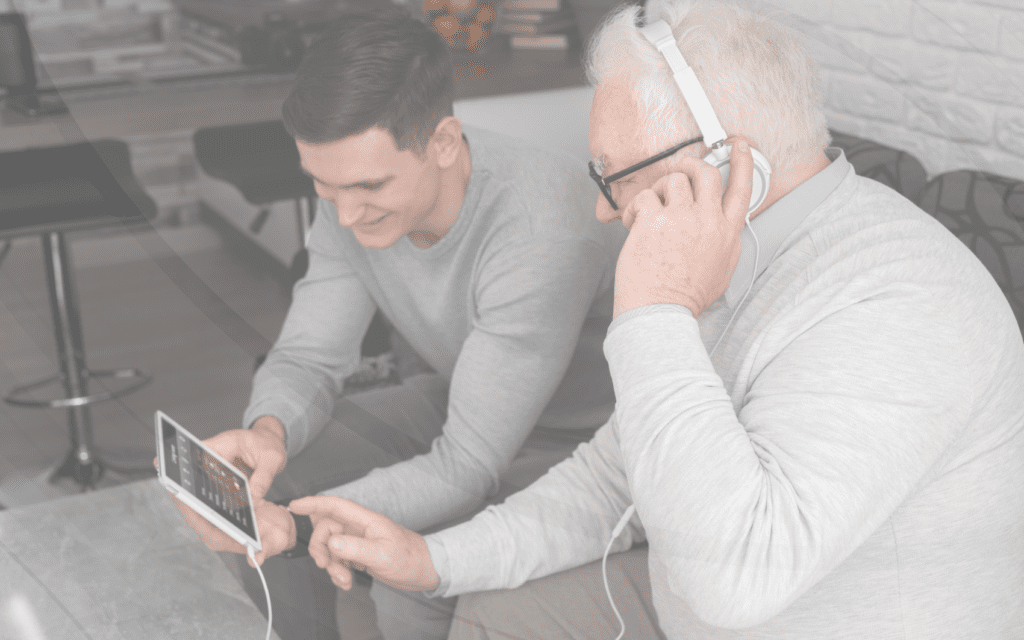Prevention of Noise-Induced Hearing Loss In Young Adults
Table of Contents
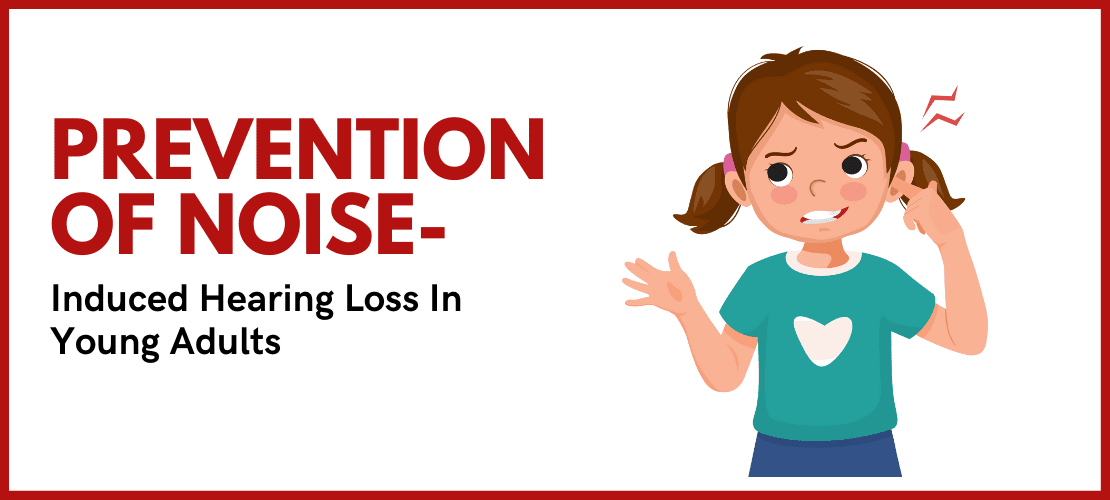
Do you always use earphones?
Are loud music parties and concerts your idea of regular hang out?
Are you exposed to heavy and loud noises like workshops, industries, railway stations, airports, clinics, etc.?
If any of your answers is yes, chances are you might be prone to a Noise-Induced Hearing Loss without even realizing it.
Not sure what we are talking about?
Yes, hearing loss can indeed affect young people as much as the elderly.
We often don’t realize that we might be exposing ourselves to a considerable amount of potentially damaging noise daily, which may hamper our hearing ability, gradually leading to hearing loss for life.
Hearing is one of our essential senses that allows us to communicate and understand sound and speech, so it becomes undeniably necessary to protect your hearing ability.
Interestingly, unlike other hearing loss types, Noise-Induced Hearing Loss is entirely preventable if we are consciously taking the precautions.
Let us understand what Noise-Induced Hearing Loss (NIHL) is, its probable causes, and how we can prevent it.
Noise-Induced Hearing Loss is a permanent hearing loss caused by prolonged exposure to high levels of noise.
We experience numerous sounds every day from mobile, television, radio, household appliances, and traffic from our surroundings. Generally, these sounds are under safe levels, which means they do not damage our hearing ability.
But when they are too loud, for an extended period, these sounds can be quite harmful. These sounds can damage sensitive structures in the inner ear, leading to noise-induced hearing loss (NIHL).
You can notice the effects of NIHL either immediately or after a prolonged time of an occurrence.
It can be temporary or permanent impairment and may affect one or both the ears.
Sometimes, you might not know that you are suffering from NIHL, but you could face slight hearing discomfort. You may also face difficulty in understanding what others say when they talk, especially over the phone.
How is one affected by Noise-Induced Hearing Loss?
As we all have different lifestyles, we are at a threat to being exposed to different kinds of harmful noises at times or regularly.
In young people, Noise-induced hearing loss usually happens slowly, so you might not even be aware that there is a problem until it is too late.
Some common symptoms might be as below.
- Right after hearing a loud noise, there may be a complaint of ringing in their ears.
- Find it challenging to hear people around clearly and may ask people to repeat themselves frequently.
- Prefer listening to music or watching the TV with the sound at a very high volume.
- Feeling tired or exhausted quickly from concentrating hard while listening even in a brief talk.
Few symptoms may get better after several hours or days because of just a single and temporary encounter with a loud noise.
However, if you are regularly exposed to loud noises or a sudden burst of deafening noise, you might permanently lose your hearing ability.
It is challenging to diagnose noise-induced hearing loss as the symptoms might easily go unnoticed for long. Generally, the treatment gets delayed if the symptoms are confused with other health-related problems.
If you notice any of these symptoms, please consider going for testing by a qualified hearing healthcare provider at the earliest.
You can also first consider going through our online hearing test to know your hearing health score before going to a professional in person.
What are the causes of Noise-Induced Hearing Loss?
Noise-Induced Hearing Loss can be caused by an exposure to some intense “impulse” sound for one-time, such as an explosion, or by exposure to loud sounds continuously, such as noise generated in house construction nearby, a motor garage, airports, rail stations, automobile factories, etc. in your vicinity.
Some recreational activities can also put you at risk for Noise-Induced Hearing Loss, such as target shooting and hunting, listening to MP3 players at high volume through earphones/ headphones, snowmobile riding, attending frequent (loud) concerts, and playing in a band.
Harmful noises at your home may also come from various sources like chimneys, drills, vacuum cleaners, mixer grinders, water motors, etc.
A typical example of a professional loud noise environment can be a dental clinic where there are drilling, washing, cleaning equipment that are constantly in use.
Another classic case could be the construction sites and the road and rail constructions that you are exposed to passively without even noticing.
The measurement of sound happens in units called decibels. At or below 70 A-weighted decibels (dBA), the sound level is unlikely to cause any hearing loss even after prolonged exposure to the noise. However, if you face prolonged exposure to sounds at or above 85 dBA, it can cause hearing loss. The louder the noise, the faster you get affected by Noise-induced Hearing Loss.
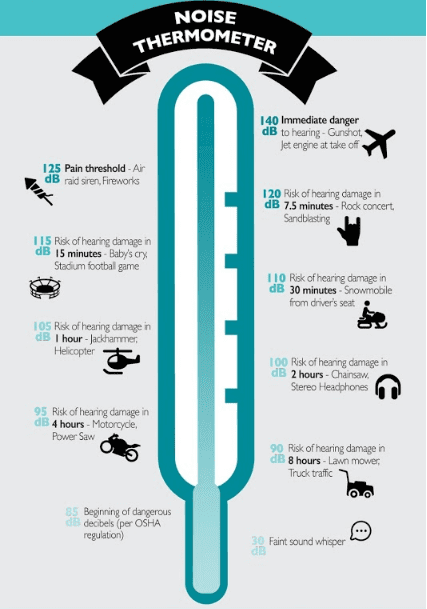
Here are the average decibel ratings of a few familiar sounds:
Normal conversation: 60-70 dBA
Movie theater: 74-104 dBA
Motorcycles and dirt bikes: 80-110 dBA
Music(with earphones on full volume), sporting events, and concerts: 94-110 dBA
Sirens: 110-129 dBA
Fireworks show: 140-160 dBA
Two of the critical factors in protecting your hearing ability are-
What was the distance from the source of the sound?
How long were you exposed to the sound?
A great rule of thumb to prevent this from happening is to avoid noises that are too loud and too close.
How to prevent Noise-Induced Hearing Loss?
Prevention is always better than cure. And the thing about, Noise-Induced Hearing Loss is that it can not be fully cured, but it is entirely preventable.
The best way to ensure this is by being aware of the harmful noises in your surrounding and also the ones you might come across occasionally.
The main aim is to help understand the consequences and think up practical solutions to protect your hearing.
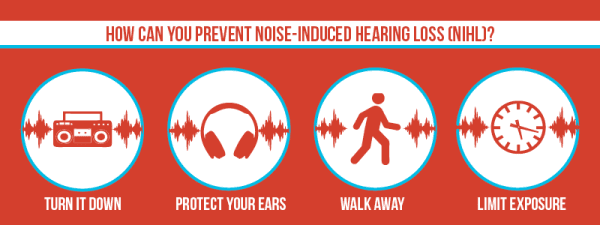
If you are confused about what to do and has trouble coming up with preventive steps, you may consider the following suggestions:
- Use your headphones, earphones, and other audio devices under the safety limit (at volumes lower than 85 decibels).
Please note that most audio devices have a maximum volume level that is higher than this recommended limit.
- Consider using earplugs while in a noisy place for longer durations. Earplugs do not stop the noise entirely, but it can reduce the sound that reaches the ear.
- Noise-canceling devices are also a great option to limit the noise output to provide a comfortable and safe listening experience without hurting.
- Suppose you are continuously exposed to loud music. Consider some custom-made hearing protection too or custom musician plugs.
Custom-made hearing protection is generally fitted with noise-reducing filters positioned to match the wearer’s particular needs. And it is guaranteed to reduce loud noise to a safe level without affecting the clarity of sounds.
- Restrict your daily use of audio devices. An excellent set to live by is called the 60:60 rule. It involves listening to audio devices at 60 percent of the maximum volume for no more than 60 minutes a day.
- Use smartphone apps to monitor safe listening levels for your kid. One such latest app is Apple’s Noise App. It acts proactively and enables the user to monitor their listening environments and take steps to protect the hearing, such as wearing earplugs when alerted to dangerous sound levels, rather than merely ignoring, hoping that they won’t affect.
- Go for hearing evaluation at regular intervals by an audiologist or other qualified hearing professionals if there is any concern about the potential hearing loss.
While the root cause of Noise-induced hearing loss may seem simple, it is essential to prevent it whenever possible. If you feel like your child might be having a hearing problem, visit the professional at the earliest to get the extra support it requires.
If you want to check the hearing score at home to be sure, take this online hearing test for free even before a consultation.
We hope this blog helped you understand the necessary details of Noise-Induced Hearing loss. If so, kindly share with everyone you think will help.
For any further assistance, connect with us at www.qualityhearingcare.com
Related Post
-
 Hearing Loss: Types, Symptoms, Causes & Treatment
Hearing Loss: Types, Symptoms, Causes & Treatment -
 Age-Related Hearing Loss (Presbycusis)
Age-Related Hearing Loss (Presbycusis) -
 How to Safely and Properly Clean Your Ears- Methods & What to Avoid
How to Safely and Properly Clean Your Ears- Methods & What to Avoid -
 Hearing Aids- Benefits, Different Styles/Types and How They Work
Hearing Aids- Benefits, Different Styles/Types and How They Work -
 What Level Of Hearing Loss Requires A Hearing Aid?
What Level Of Hearing Loss Requires A Hearing Aid? -
 Differences Between Conductive and Sensorineural Hearing Loss
Differences Between Conductive and Sensorineural Hearing Loss -
 When is the correct time to upgrade Hearing Aids?
When is the correct time to upgrade Hearing Aids? -
 How Can Hearing Aids Assist School Aged Children?
How Can Hearing Aids Assist School Aged Children? -
 The Impact of Hearing Loss on Cognition
The Impact of Hearing Loss on Cognition -
 Hearing Resides in Your Brain, Not Just Your Ears
Hearing Resides in Your Brain, Not Just Your Ears -
 Exploring Link Between Hearing Loss and Depression_ Breaking the Silence
Exploring Link Between Hearing Loss and Depression_ Breaking the Silence -
 New Hearing Aids? Here’s How To Make The Most Of The Device
New Hearing Aids? Here’s How To Make The Most Of The Device -
 The Unseen Link Between Diabetes and Hearing Loss
The Unseen Link Between Diabetes and Hearing Loss -
 Prevention of Noise-Induced Hearing Loss In Young Adults
Prevention of Noise-Induced Hearing Loss In Young Adults -
 Embarking on the Search for the Right Hearing Aid
Embarking on the Search for the Right Hearing Aid


